第61章
Before I proceed in relating the part I had in public affairs under this new governor's administration, it may not be amiss here to give some account of the rise and progress of my philosophical reputation.
In 1746, being at Boston, I met there with a Dr.Spence, who was lately arrived from Scotland, and show'd me some electric experiments.They were imperfectly perform'd, as he was not very expert; but, being ona subject quite new to me, they equally surpris'd and pleased me.Soon after my return to Philadelphia, our library company receiv'd from Mr.P.Collinson, Fellow of the Royal Society of London, a present of a glass tube, with some account of the use of it in making such experiments.I eagerly seized the opportunity of repeating what I had seen at Boston; and, by much practice, acquir'd great readiness in performing those, also, which we had an account of from England, adding a number of new ones.I say much practice, for my house was continually full, for some time, with people who came to see these new wonders.
To divide a little this incumbrance among my friends, I caused a number of similar tubes to be blown at our glass-house, with which they furnish'd themselves, so that we had at length several performers.Among these, the principal was Mr.Kinnersley, an ingenious neighbor, who, being out of business, I encouraged to undertake showing the experiments for money, and drew up for him two lectures, in which the experiments were rang'd in such order, and accompanied with such explanations in such method, as that the foregoing should assist in comprehending the following.He procur'd an elegant apparatus for the purpose, in which all the little machines that I had roughly made for myself were nicely form'd by instrument-makers.His lectures were well attended, and gave great satisfaction; and after some time he went thro' the colonies, exhibiting them in every capital town, and pick'd up some money.In the West India islands, indeed, it was with difficulty the experiments could be made, from the general moisture of the air.
Oblig'd as we were to Mr.Collinson for his present of the tube, etc., I thought it right he should be inform'd of our success in using it, and wrote him several letters containing accounts of our experiments.He got them read in the Royal Society, where they were not at first thought worth so much notice as to be printed in their Transactions.One paper, which I wrote for Mr.Kinnersley, on the sameness of lightning with electricity, I sent to Dr.Mitchel, an acquaintance of mine, and one of the members also of that society, who wrote me word that it had been read, but was laughed at by the connoisseurs.The papers, however, being shown to Dr.Fothergill, he thought them of too much value to be stifled, and advis'd the printing ofthem.Mr.Collinson then gave them to Cave for publication in his Gentleman's Magazine; but he chose to print them separately in a pamphlet, and Dr.Fothergill wrote the preface.Cave, it seems, judged rightly for his profit, for by the additions that arrived afterward they swell'd to a quarto volume, which has had five editions, and cost him nothing for copy-money.
It was, however, some time before those papers were much taken notice of in England.A copy of them happening to fall into the hands of the Count de Buffon, a philosopher deservedly of great reputation in France, and, indeed, all over Europe, he prevailed with M.Dalibard to translate them into French, and they were printed at Paris.The publication offended the Abbe Nollet, preceptor in Natural Philosophy to the royal family, and an able experimenter, who had form'd and publish'd a theory of electricity, which then had the general vogue.He could not at first believe that such a work came from America, and said it must have been fabricated by his enemies at Paris, to decry his system.Afterwards, having been assur'd that there really existed such a person as Franklin at Philadelphia, which he had doubted, he wrote and published a volume of Letters, chiefly address'd to me, defending his theory, and denying the verity of my experiments, and of the positions deduc'd from them.
I once purpos'd answering the abbe, and actually began the answer; but, on consideration that my writings contain'd a description of experiments which any one might repeat and verify, and if not to be verifi'd, could not be defended; or of observations offer'd as conjectures, and not delivered dogmatically, therefore not laying me under any obligation to defend them; and reflecting that a dispute between two persons, writing in different languages, might be lengthened greatly by mistranslations, and thence misconceptions of one another's meaning, much of one of the abbe's letters being founded on an error in the translation, I concluded to let my papers shift for themselves, believing it was better to spend what time I could spare from public business in making new experiments, than in disputing about those already made.I therefore never answered M.Nollet, and the event gave me no cause to repent my silence; for my friend M.le Roy, of the Royal Academy of Sciences, took up my cause and refuted him; mybook was translated into the Italian, German, and Latin languages; and the doctrine it contain'd was by degrees universally adopted by the philosophers of Europe, in preference to that of the abbe; so that he lived to see himself the last of his sect, except Monsieur B----, of Paris, his eleve and immediate disciple.